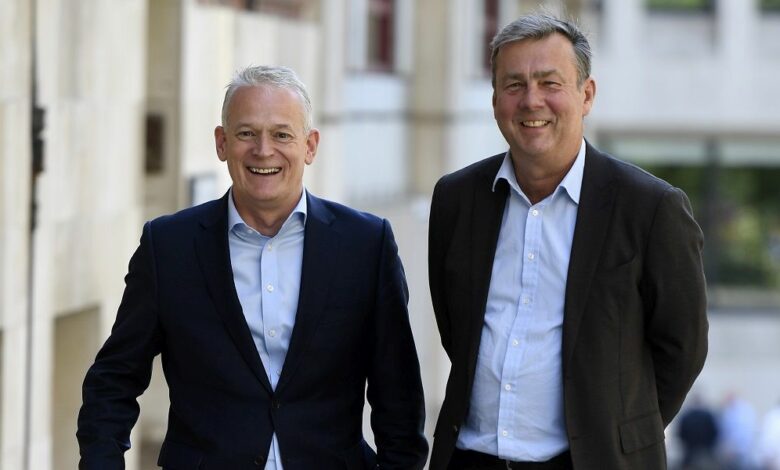NorthStandard: From the rugby pitch to the boardroom

NorthStandard, formed through the merger of North and Standard Club, officially launched on February 20 as one of the world’s largest providers of mutual maritime cover.
With over 390 million gt of owned and chartered tonnage on its books, the new entity consolidates annual premiums of around $800m and employs more than 700 people led by managing directors Jeremy Grose (pictured right) and Paul Jennings (pictured left) – respectively previously CEOs of the Standard Club and North legacy organisations.
Speaking with Maritime CEO, Jennings says the first month of working in tandem with Grose has gone well, the trick being, he says, has been not to “duplicate bandwidth”.
Prior to the merger going through, the two men had been for many sessions with a coach, a sports psychologist who has worked with the British and Irish Lions rugby team previously, on how to work effectively as a team.
When pushed to identify who does what, Jennings says he is more external, while Grose is more internal.
The creation of NorthStandard has certainly created a buzz in the world of P&I, with strong speculation that this is the first of a series of mergers.
“Rumour-wise, discussions have started,” Jennings says, sure that every other major club will have had it high up on their boards for discussion.
However, he cautions others will find it hard to seek out the perfect match.
“It is difficult to have the mindset to put it together,” Jennings says. NorthStandard is a merger of equals, he says, where as often mergers take place out of financial necessity.
“To come through with your preferred partner takes time,” he says.
Jennings, like all members of the International Group of P&I Clubs, is watching on with concern at the growth of the so-called dark fleet, ships that trade avoiding sanctions in place against countries including Venezuela, Iran and latterly Russia.
The size of the dark tanker fleet, estimated by Splash to be 421 ships and growing as of February 20 this year, has many concerned that a major accident is coming, with most of the ships at an advanced age and with questionable management practices in place.
“The dark fleet is perceived to be of less quality,” Jennings concedes, admitting he is concerned about the “unintended consequences” of the rapid escalation of the shadow fleet.
“If an accident happens there is nothing we can do about it,” Jennings says.
Major class societies, managers, and insurers have shunned former clients in Moscow in the wake of war in Ukraine, with substandard tonnage subsequently running into trouble at many destinations around the world, exacerbated by increased use of ship-to-ship transfer operations.
